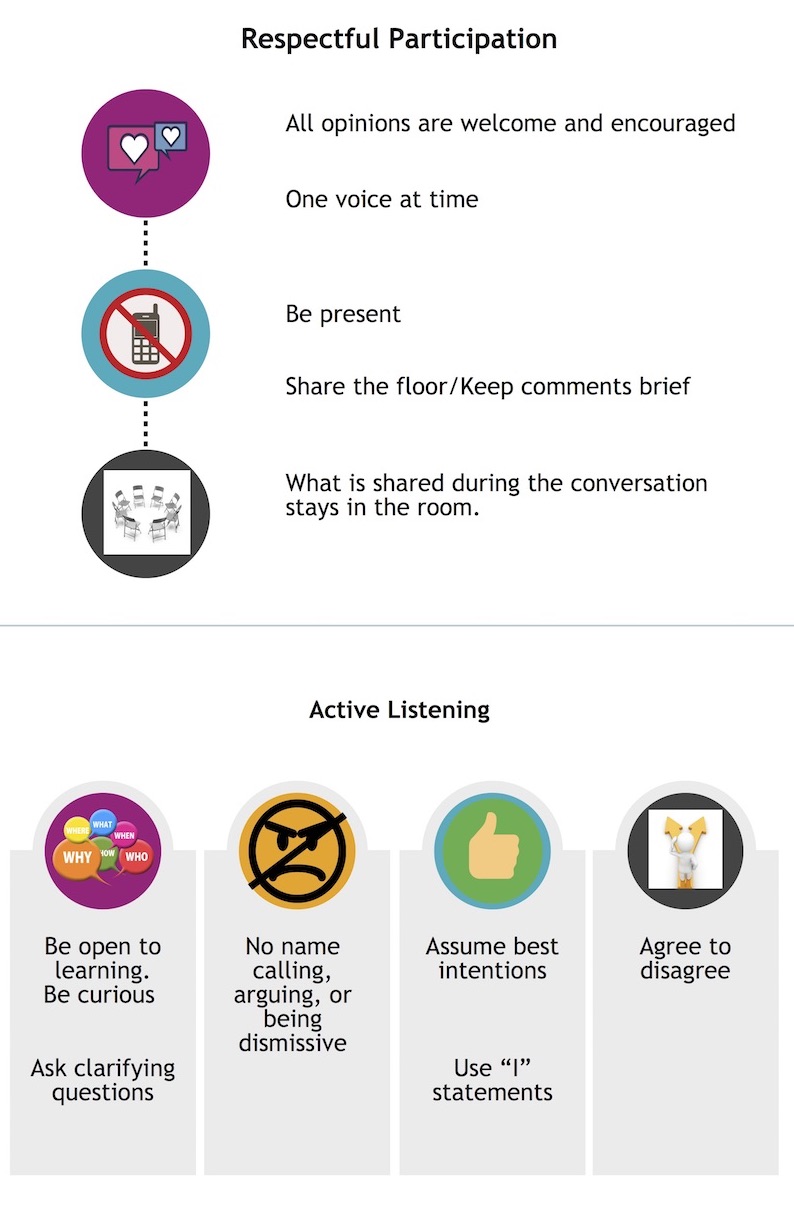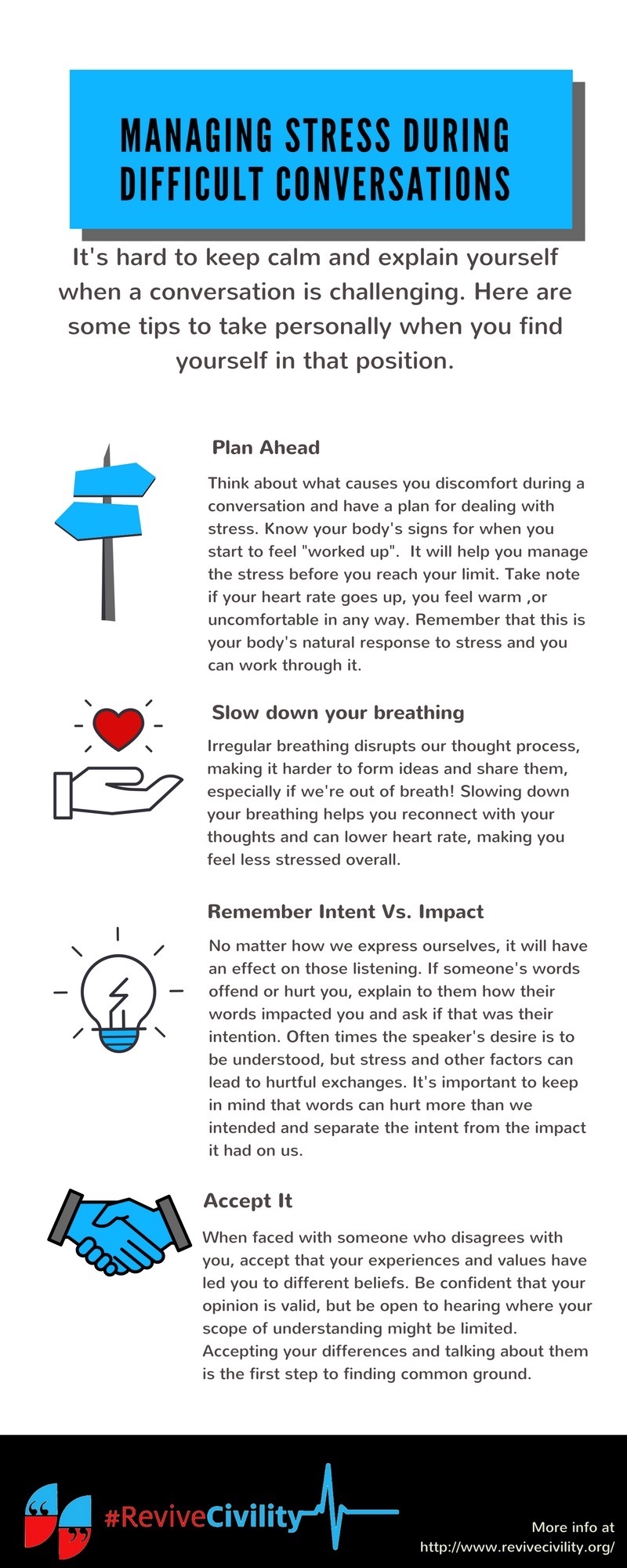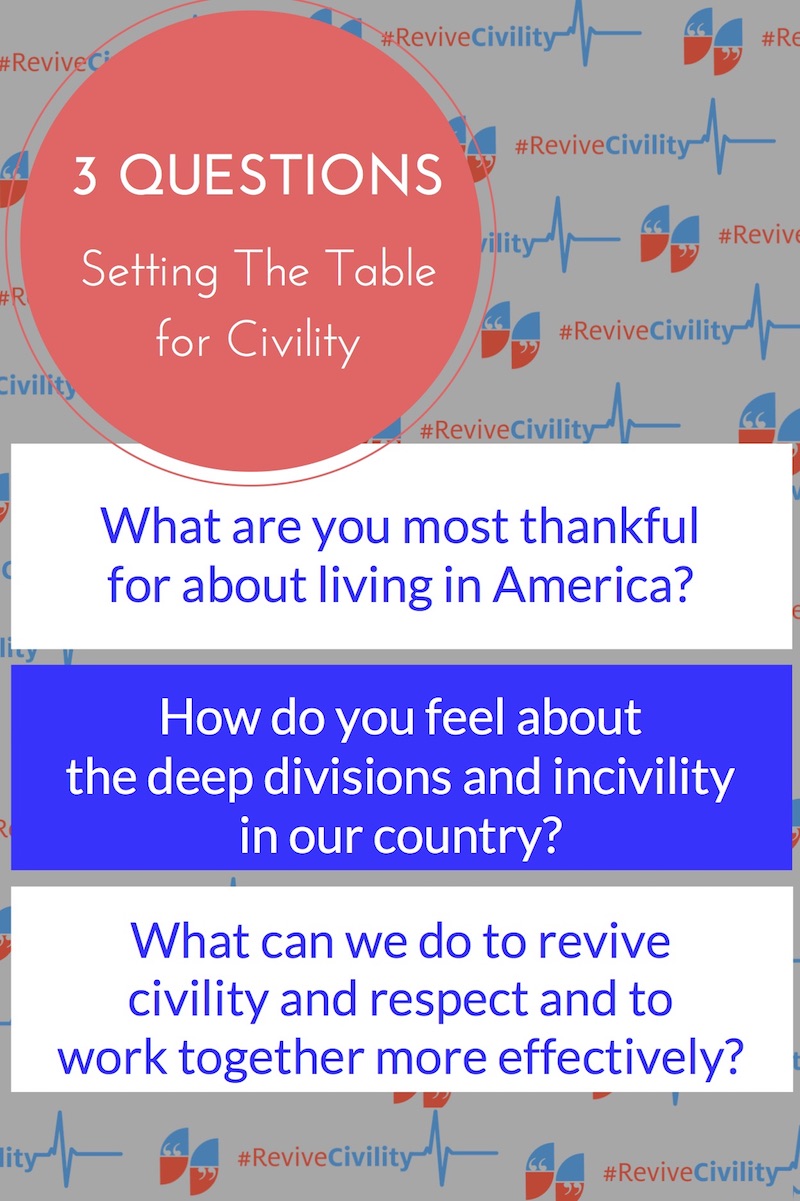For most families, the holidays mean getting together and sharing a meal with friends and relatives. It’s supposed to be a joyous time, but for lots of reasons, it can be anything but. And this year, it may be harder than ever to have civil conversations — even if you’ve got a family rule to stay away from hot topics at the dinner table, especially politics.
Revive Civility
In 2011, the community of Tuscon, Arizona founded a non-partisan organization called the National Institute on Civil Discourse. They did so in response to the shooting that killed six people and wounded 13 others, including former Arizona Congresswoman Gabrielle Giffords. The organization’s primary goal is to promote healthy and civil political debate.
After the 2016 election, it became clear to staff that America was more divided than at any other time in recent political history. They developed an initiative called Revive Civility, which among other things, works with national and state legislators and trains them on civility and civil discourse. “But the election of 2016 revealed that it wasn’t just legislators who were having difficulty talking and listening to each other, it was all of us,” Mark Hews told me in a recent phone conversation.
The Institute decided to choose four states — Arizona, Iowa, Ohio, and Maine — for an intensive yearlong effort that would help people at all levels improve the way they talk and listen to each other. Mark is the state coordinator for Maine Revives Civility, which kicked off in October 2017.
“Revive Civility is about helping people understand what civil discourse is. It’s the free and respectful exchange of different ideas. And being able to practice that with people of different ideologies and different values in the public space or around the dinner table with family and friends. It’s being able to show mutual respect towards one another.” ~Mark Hews
Setting the Table for Civility
Revive Civility invites people to take a personal pledge to model and promote civility. It also provides ideas and materials to help people engage in civil community conversations. Because after the election people who were worried about irate relatives ruining their holiday meals also began calling the Institute for advice, the organization developed some guides and Infographics that it calls Setting the Table for Civility.
And here we are, many of us, getting ready to set our own tables for a holiday meal. The decorations are beautiful and we’ll serve a sumptuous meal on our best china. We want it to be perfect for everyone. Only at the table will be an uncle who’s as conservative and outspoken as they come and an equally outspoken ultraliberal sister-in-law. You’re dreading it because you know what’s going to happen. There’s bound to be a shouting match and all you want is for people to get along — to be civil toward one another.
Revive Civility is all about bringing people with different political views together so they can listen respectfully to each other, talk about their differences and hopefully, build relationships. During the holidays, you’ve got a captive audience right there at your dining room table. Why not take advantage of some of the tools Setting the Table for Civility offers. Try starting your own conversation with these three questions:
Ground rules
It might also be helpful to establish conversation ground rules. Here are some suggestions:
 When I asked Mark if he had any concerns about sharing a holiday meal with his family he said no, but told me an interesting story about his father.
When I asked Mark if he had any concerns about sharing a holiday meal with his family he said no, but told me an interesting story about his father.
“My dad is 91 years old and he’s seen a lot. And he remembers the time when Democrats and Republicans worked together and still held their views. He’s of a generation that has seen the progression of where we were to where we are now and is not necessarily liking what he sees.”
It is possible to have constructive conversations — in any setting — but what if things start to go awry at your dinner table? Keep these tips handy for you and your guests.
Happy holidays!
Civility (or incivility) isn’t someone else’s problem. Civility begins with each of us. We have the opportunity to practice it, model it for our children and demand it (respectfully) of our elected officials.
I hope this information about reviving civility strikes a chord with you and your family and that your holiday is filled with love and civility. At the very least, it will be good for your health.
“I think there’s there’s an element of joy and happiness when you feel good about your exchange with somebody. We all understand what it’s like to come away feeling belittled by a personal attack and it’s not a good feeling. Either way, it can affect you physically.” ~Mark Hews
To find out how you can participate in Revive Civility, here’s a list of resources. And here’s to your good health!


Leave A Comment